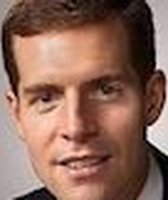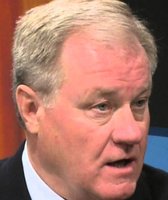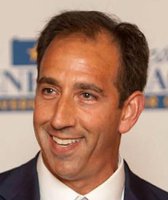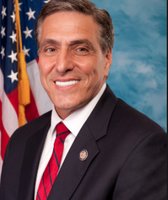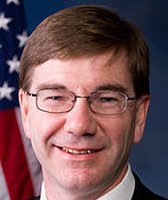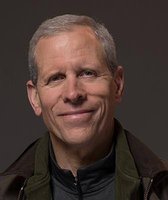Get PolitiFact in your inbox.
Conor Lamb's rejection of corporate PAC money needs context
When Democrat Conor Lamb took the stage inside a Canonsburg ballroom brimming with supporters and news media on election night, he claimed victory in what amounted to one of the massive political upsets of the Trump Era. And he was clear that they’d managed this feat not with the financial backing of corporations, but with a grassroots network and a slew of small-money contributions.
"I'm proud that you helped me refuse corporate PAC money," he said to applause.
Lamb ran to fill Pennsylvania’s 18th congressional district seat, which was vacated by former U.S. Rep. Tim Murphy, a Republican, late last year. The New York Times and Democrats have called the race for Lamb, though absentee and provisional ballots were still being counted as of Friday, with Lamb leading his Republican opponent, state Rep. Rick Saccone, by hundreds of votes.
The darkhorse Democratic candidate raised millions in mostly small, online donations during the campaign — up to 62 percent of them from not just outside of the 18th district, but from outside of the state.
But is it true that corporate PAC money played no role in his campaign?
According to the Federal Election Commission, Lamb received 99 "discrete PAC contributions" from a total of 81 different PACs. Some of those PACs contributed multiple times. No corporate PAC contributions were reported by his campaign committee, per the FEC.
Instead, many of these PACs belong to unions; veterans groups; advocacy groups, such as the JStreet PAC, a self-described "political home for pro-Israel, pro-peace Americans"; and a host of Democratic leadership groups.
"He mainly received money from labor PACs and Democratic leadership PACs," said Andrew Mayersohn, a committees researcher with the Center for Responsive Politics.
"Labor PACs, obviously, don’t receive money from corporate PACs. Leadership PACs do (usually) take corporate PAC contributions, but I doubt that Lamb will feel indebted to Comcast just because Comcast's PAC gave to [U.S. Rep] Mike Doyle’s leadership PAC last year, and Doyle gave to Lamb’s campaign this year. More likely, he’ll feel indebted to Mike Doyle," Mayersohn said.
Adam Bonin, a Philadelphia lawyer specializing in political law compliance and advocacy, said the difference between accepting money from a corporate PAC and a PAC that has received corporate funds — or funds from corporate executives and employees — is significant.
"When people refer to corporate PACs, what they mean are PACs established by corporations and funded by their employees with officers and directors who decide where the funds are directed," Bonin said.
In Lamb’s case, donations of $200 or less accounted for half of the money — millions of dollars in total — raised by his campaign, according to Anne Feldman, press secretary for End Citizens United, a prominent backer of his campaign.
But there were also donations from PACs reliant on support from executives and employees — and their relatives — at some of America’s largest companies and conglomerates.
This includes Massachusetts Sen. Joe Kennedy III’s 4MA leadership PAC, which counts individuals with ties to Goldman Sachs, Ford Motor Company, Home Depot and a slew of pharmaceutical companies among its Top 20 contributors, per OpenSecrets.org and the Center for Responsive Politics, the group behind the site.
The Keystone Fund PAC, U.S. Rep. Mike Doyle’s political action committee, also donated to Lamb and has top donors with connections to T-Mobile, Comcast, Exelon and Google. Sen. Bob Casey’s Keystone America PAC, another Lamb contributor, has Blue Cross/Blue Shield, Aetna, Johnson & Johnson and Ernst & Young in its Top 20.
There’s also AmeriPAC: The Fund for a Greater America, a Lamb donor with contributors tied to Coca-Cola and Boeing, OpenSecrets.org reports. Each of these PACs donated the maximum of $5,000 to Lamb’s campaign.
"We group those [individual] contributions with corporate PACs when we talk about industry giving. For example, PNC Bank's PAC and PNC executives are ultimately part of the financial industry's political influence," Mayersohn said of OpenSecret.org’s lists of top PAC donors.
"Since most people work for a corporation of some kind, it's pretty hard for a campaign to avoid taking contributions from ‘corporate employees or owners.’ Lamb received some contributions from PNC employees, but would not have accepted money from their PAC (if asked)."
Feldman added: "When you're accepting money from a non-corporate PAC, it comes from hundreds, often thousands, of people who are concerned about issues that affect their day-to-day lives. This is very different from accepting money from corporate PACs which have a singular agenda, the corporation’s bottom line." (Of course there is the potential for overlap between corporate interests and the interests of non-corporate PACs.)
Corporate executives and employees are also capable of donating — with legal limits — to Lamb directly, which some certainly did. Bruce Ledewitz, a constitutional law professor at Duquesne University, said this is neither unusual nor improper.
"The question is if a rich person gives money to Donald Trump knowing Trump favors lower taxes, is that undue influence? And I say no, it is not," Ledewitz explained. "I don’t think there’s the slightest indication that campaign contributions have any influence at all. Lobbying has influence."
Mayersohn said there were also no corporate PAC expenditures on mailers or ads in support of Lamb’s candidacy. "Corporate PACs almost never make independent expenditures," he said. "Sometimes trade association or industry PACs (like the American Chemistry Council or the National Association of Realtors) make independent expenditures, but not in this race."
While some argue that the shunning of corporate PACs by political candidates is largely an empty gesture, groups like End Citizens United tout the Lamb campaign’s lack of corporate PAC donors as a breath of fresh air.
Lamb campaign manager Abby Murphy also said Lamb will again refuse corporate PAC money when he runs in November, this time in the what would be the new 17th Congressional District under a statewide redistricting plan.
Our ruling
U.S. Congressional candidate Conor Lamb said, "I'm proud that you helped me refuse corporate PAC money."
FEC records do not list corporate PACs as having donated to his campaign or having directly spent money in support of his candidacy. While it’s possible corporate PAC money donated to other PACs reached him indirectly, experts say that’s not the same thing.
Lamb’s claim is literally accurate, but campaign finances are complicated and voters need additional information.
Our Sources
Email and telephone interviews, Bruce Ledewitz, professor of law, Duquesne University School of Law, March 15, 2018
Email, Christian Hilland, deputy press officer, Federal Election Commission, March 15 and 16, 2018
Phone interview, Adam Bonin, a Philadelphia lawyer specializing in political law compliance and advocacy, March 15, 2018
Email, Anne Feldman, press secretary with End Citizens United, March 16, 2018
Email, Andrew Mayersohn, committees researcher with the Center for Responsive Politics, March 16, 2018
News post, Politicians saying 'no' to corporate PAC donations are pulling a stunt, The Hill, March 3, 2018
News post, Outside Money Pours into PA-18 Special Election, Politics Pa., March 7, 2018
News post, Conor Lamb, Rick Saccone to run again in November in new and different congressional districts, ABC News, March 15, 2018
Webpage, donor lists by industry for the Serve America PAC, OpenSecrets.org
Webpage, donor lists by industry for the 4MA leadership PAC, OpenSecrets.org
Webpage, donors lists by industry for The Keystone Fund PAC, OpenSecrets.org
Webpage, donors lists by industry for AmeriPAC: The Fund for a Greater America, OpenSecrets.org
Browse the Truth-O-Meter
More by Colin Deppen
Conor Lamb's rejection of corporate PAC money needs context
Support independent fact-checking.
Become a member!
In a world of wild talk and fake news, help us stand up for the facts.

